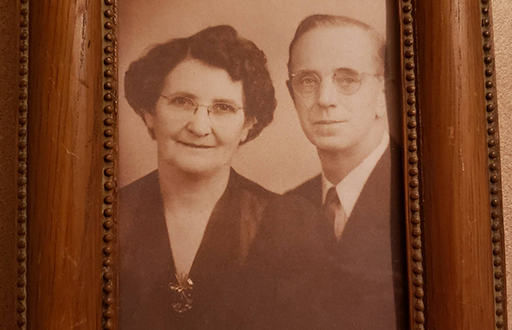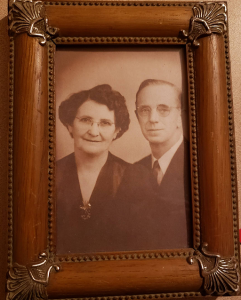The following list is intended to be a suggestion of works I think should be included in any liberal arts education. Why these works? Primarily because of the influences of the philosophies represented in the works, the genre and form emanating from social eras, and for the continual allusions to these works readers find in modern print. I am firmly convinced that successful critical thinkers and excellent writers are those who have strong backgrounds in reading critical thinking and good writing. Multiple works by one author are listed under the author’s name; single works of literature are listed by title.
There will also be a list posted (eventually) of works of literature you will enjoy or might want to read but that are not necessary for the background of liberal arts as I have explained it above.
I have listed my suggestions in chronological (time) order for ease of finding a particular work. Thinking in these chronological lines, though, is valuable when referencing the works by philosophical eras. It will also help you to relate contemporaries and their common ideas.
Mythology
Capturing the primitive explanations for events of nature, the need of man for a deity, and the consequences of behavior are the primary reasons for reading ancient mythology. I like the explanations in the version by Edith Hamilton better than Bullfinch’s.
Homer
Read the Iliad and the Odyssey in translation, of course. Social order and boundary wars, heroes, and trials suffered at the hands of the gods give us good insight into ancient ways of life. I already know what you are thinking: These books are very thick and might be good reading for a journey on the slow boat to China. If you just can’t fathom reading the complete work, select a reliable “retelling” such as the Puffin Classics series. Tales of the Greek Heroes, The Tale of Troy and The Luck of Troy are some in that series that will fill you in on the same legends. Some of the Great Illustrated Classics are at least true to the original plot, but do leave out religious significances.
The Aeneid
Everyone knows the story of the Trojan horse, taken from this great work of Virgil’s. This Roman poet (Publius Vergilius Maro 70B.C.-19B.C.) recorded the history of the invasion and conquer of Rome by the Trojans. Leaving the city of Troy under the leadership of Aeneas, the Trojans establish a new “country” called Latium and establishes the Latin race according to Virgil.
Aesop’s Fables
The Greek slave had a tremendous insight into human nature and the moral conflicts that man has with his nature. Don’t skip reading these in their original form if you can locate a copy. I have an 1885 edition which contains 350 of the fables attributed to Aesop. The difference in content between these and modern (especially children’s editions) is astounding. But if you can’t find one of these older, less edited versions, read what you can find. These fables are greatly alluded to in modern writing. One current popular business book, Who Moved My Cheese?, could easily have come from a number of these fables, as the premise is nothing new and the intent of the message is the same: adapt or be eaten. Read The Herdsman and the Lost Bull or The Fox and the Goat or ten others and apply the comparison. You will quickly see the simplicity of this business book that is still a best seller.
Sophocles
This is the name of the author of what I consider the most critical (i.e., necessary) works of Greek drama. His tragedies form the foundation of modern works, especially that of Shakespeare. Try to find a copy with explanations of the form of Greek drama, also a good background to have. Many school textbooks will have this explanation of exposition, rise and fall, climax, antagonist and protagonist, etc. I strongly suggest reading a modern translation of Sophocles’ Oedipus Rex (the King) and Antigone. There is a second play, Oedipus at Colonus, which is part of the trilogy but not necessary for modern allusions. Here you will find the explanation of the modern complex dubbed the Oedipus complex.
Plato’s Republic
The first writer to approach the idea that the Pagan gods were not real set in motion an idea we still claim (at least superficially) to embrace: that philosophically critical thinkers are primary to a lasting society.
Aristotle, Plutarch, Ovid
I’ll get letters for this, but these are three authors that you should read something from if you have the inclination but otherwise, there are more important authors and works to address if you are playing catch up at a late stage in your life.
Beowulf
This duel between good (Beowulf) and evil (Grendel) is stylized in this first English epic, a long narrative poem recounting the deeds of a national hero; in this case, Beowulf.
Dante’s The Divine Comedy
The Italian author writes of an imaginary journey into Hell, referred to by him as The Inferno. This section is often used as a work in itself. The entire work is classified by Dante as a comedy because his final journey takes him to Heaven through Divine revelation. This dreamlike journey is the catalyst that convinces man to turn from sin and pursue the Divine in hope of Heaven.
Wyclif
Jon Wyclif was a premier student and later Professor at Oxford (England). He became well known for his assertion that the Pope is human. He also attacked practices of the Roman church for which he was condemned and forced into retirement in the English town of Lutterworth. It was here that he wrote the majority of his best known works, including the Bible which bears his name. Still considered a heretic for these writings after his death, his body was exhumed, burned, and his ashes ordered to be scattered such that no trace of the man could ever be found.
Geoffrey Chaucer
Of course, the Canterbury Tales cannot be overlooked. The humor and levity written within the context of human frailty is Chaucer’s trademark. Be sure to find a copy with an explanation of the Pilgrimage to Canterbury and its significance. The Prologue, only the introduction to the Tales, describes the crazy quilt of characters making the journey in Chaucer’s work. Two of the most popular Tales can be found in many 9th or 10th grade literature books. “Chanticleer and Pertelote” (The Nuns’ Priest’s Tale) is the story of the clever fox who tricks the prattling rooster. “The Black Rocks of Brittany”, told by the Franklin, is a strong portrayal of true love and its strength. If early literature could have been put on film, this story would be a real “Chick Flick.”
Erasmus
This scholar from the Netherlands is one I think every student of literature ought to read simply because of the vastness of his impact on the modern written word. His acknowledged great work was the first printed translation of the Greek New Testament. He undertook this task because he found numerous errors in the much used Latin Vulgate. Note: vulgate means common; it is the same root from which we get our word vulgar, meaning to be too common or familiar. Erasmus’ corrections and subsequent consistency of pattern for grammar, spelling, and sentence structure became the basis for much of our modern English rules of grammar. One of his works, Christian Solders’ Manual, is not well known but is a defense of the Bible being available to every man in his own language. This ability to read the Bible for oneself is the basis for true Christianity, according to Erasmus.
Martin Luther
The leader of the Reformation in Germany deserves attention for his lasting gift to the wresting of Christianity from religion. You should not skip a reading of his Theses (written in 1517), nor of his many great hymns.
Utopia
Sir Thomas More was a student of Erasmus, and a counselor to King Henry VIII who opposed the divorce Henry sought from his legal wife, Catherine of Aragon, for which he was beheaded by the Monarch. Probably the premier humanist of his day, this work explains More’s fascination with Cicero and the idea of man being sufficient unto himself.
William Tyndale
Again we find a true scholar dedicated to the work of translating the Scriptures into language for the common man. His English New Testament was one of the first translations from the original Greek. Known as the Worms version because it was completed in that German town, it is estimated to be the primary basis for much of the King James Version of the New Testament. He was publicly strangled and burned in 1536.
John Foxe’s Acts and Monuments
This is the original title of what we now call Foxe’s Book of Martyrs. These are gruesome but first hand accounts of the execution of Christian saints at the hand of the Catholic and English churches. Any time you feel persecuted, read just one of these accounts!
The Legend of King Arthur
I will recommend here that you find at the least some explanation of King Arthur and the Knights of the Roundtable.




